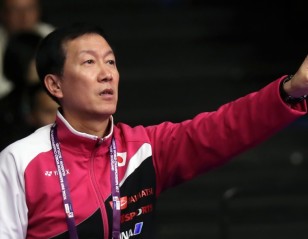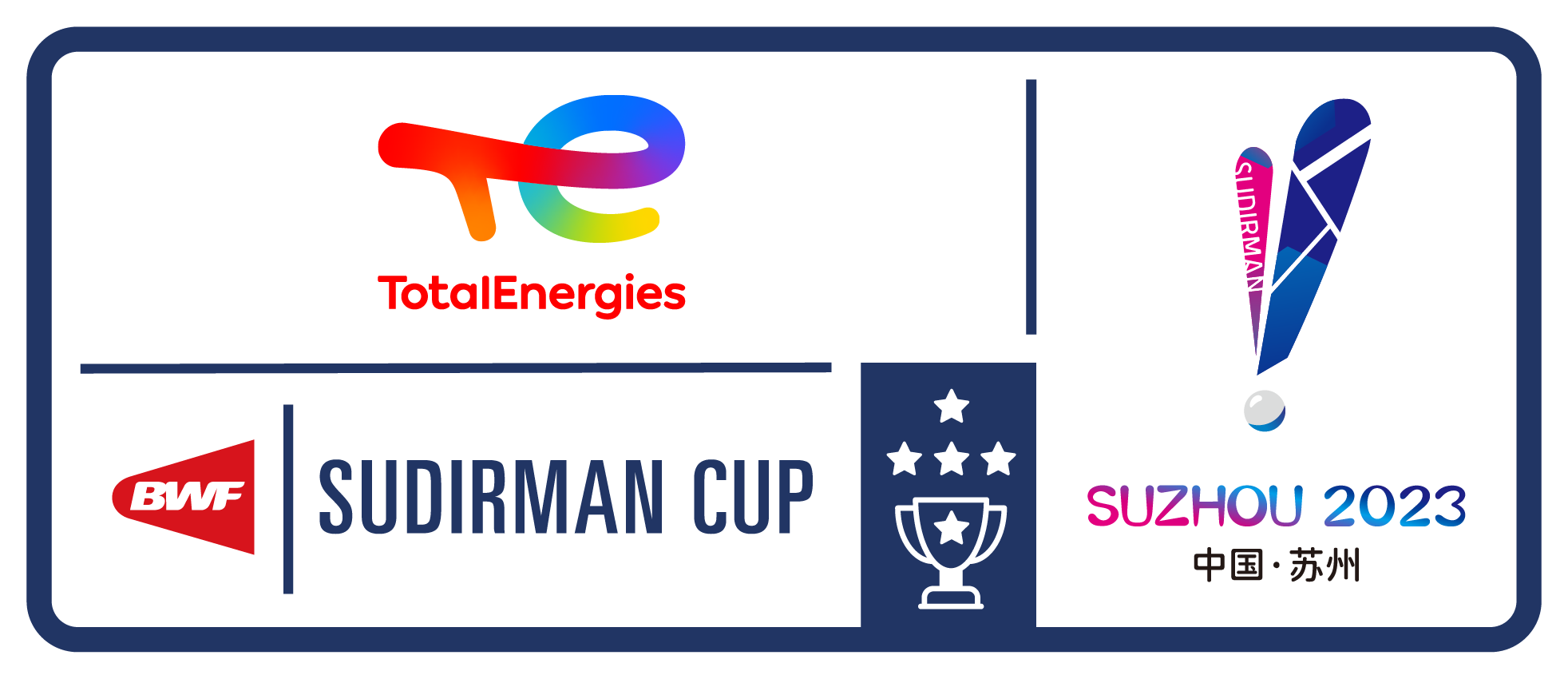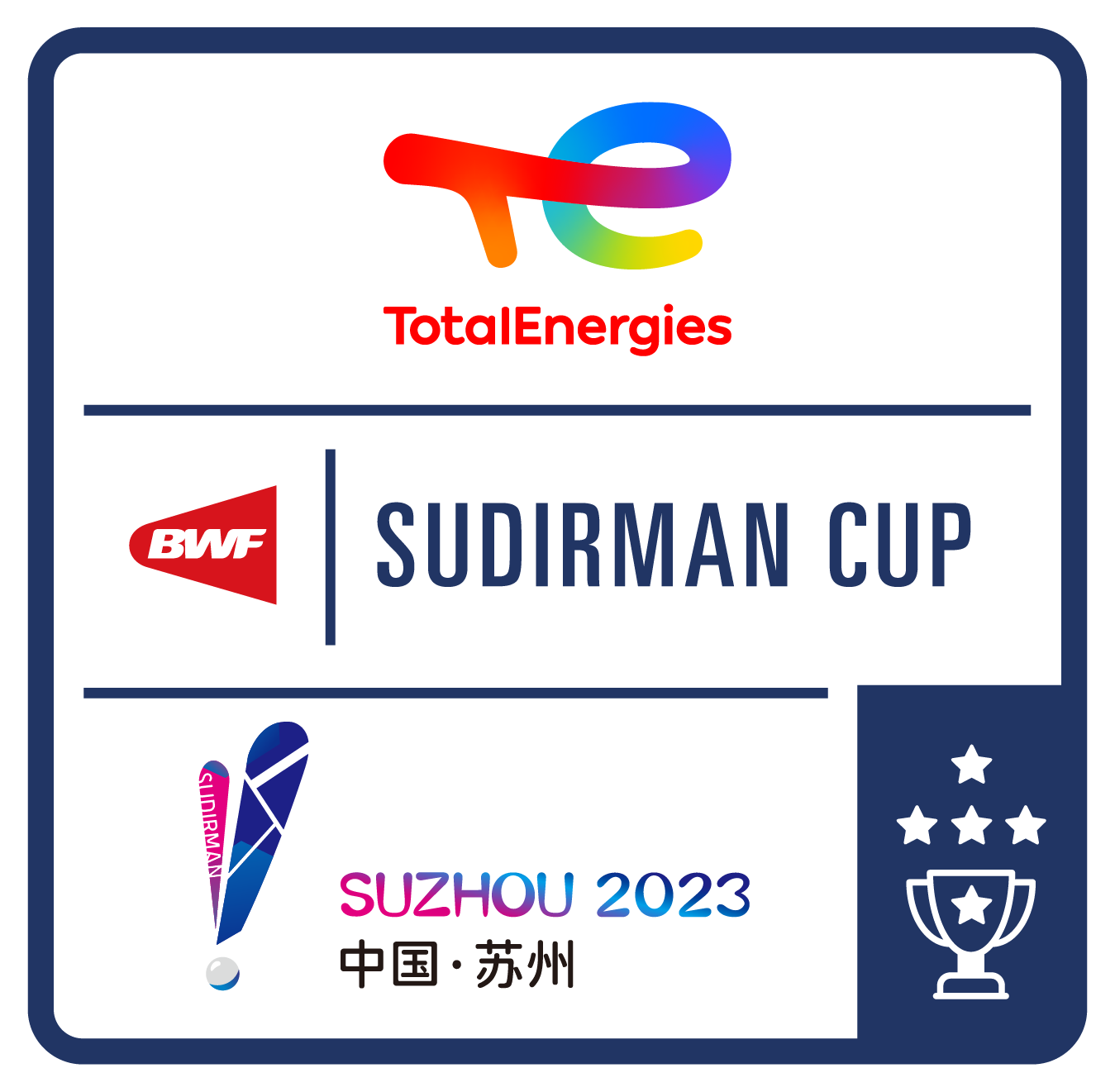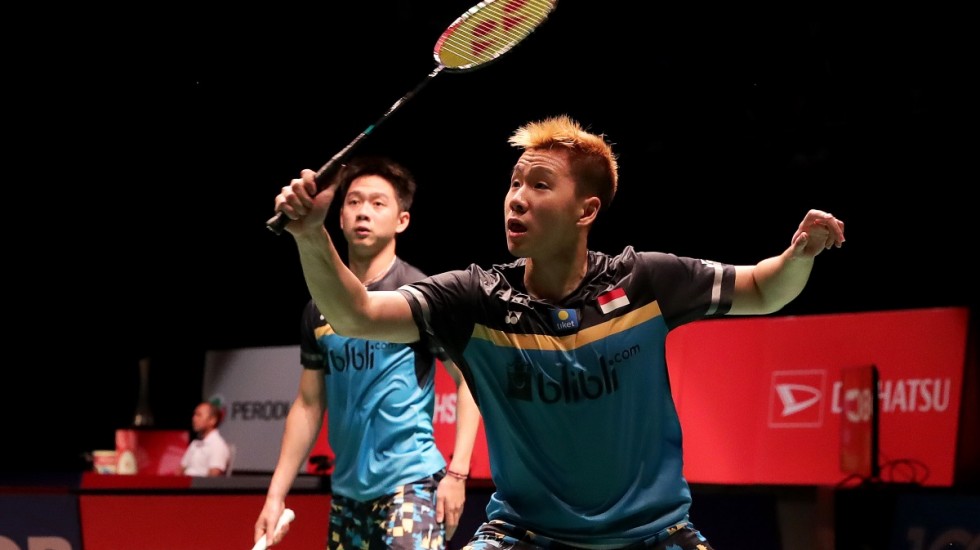
Men’s Doubles at Sudirman Cup – A Form Guide
Marcus Fernaldi Gideon and Kevin Sanjaya Sukamuljo’s second-game meltdown in the Badminton Asia Championships 2019 on Sunday might have caused a few furrowed brows in the Indonesian team in the run-up to the TOTAL BWF Sudirman Cup 2019.
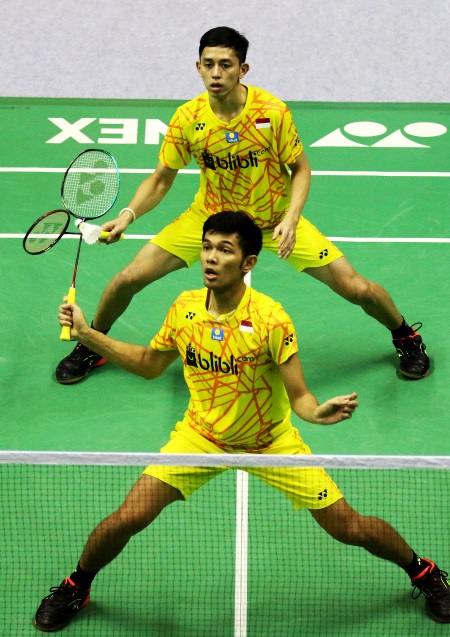
It has been 30 years since the Indonesians won the Sudirman Cup – the last was in 1989, when the tournament debuted in Jakarta – and Indonesia can nurse hopes of a strong performance given their strength in the various disciplines. But they will know that success in men’s doubles will be crucial.
Gideon and Sukamuljo have been their most consistent performers over the last two years or more – but this season has been a different story.
The Minions, who won back to back titles at the Malaysia Masters and the Indonesia Masters, crashed out in the opening round of the All England, suffered a quarterfinal exit at the Malaysia Open, and a semifinal loss at the Singapore Open. They redeemed themselves somewhat by making the final in Wuhan, but the manner of their defeat – a 21-3 hammering in the second game by Japan’s Hiroyuki Endo/Yuta Watanabe – wouldn’t have inspired confidence in the team’s brains trust.
Indonesia, in Group 1B, might also count on the services of Fajar Alfian/Muhammad Rian Ardianto, semifinalists at the All England and winners of the Yonex Swiss Open.
They beat their renowned compatriots Gideon/Sukamuljo on the way to the semifinals of the Malaysia Open, and have grown as a strong and dependable pair.
For Japan, in Group 1A with Thailand and Russia, Takeshi Kamura/Keigo Sonoda have had a stellar season, culminating in the Singapore Open title victory. Their consistency has stood out, as they made three finals in four tournaments, and the semifinals of the All England and the Badminton Asia Championships.
Japan will also be pleased with the form of Hiroyuki Endo/Yuta Watanabe, who won the Badminton Asia Championships last week and the Yonex German Open earlier this year.
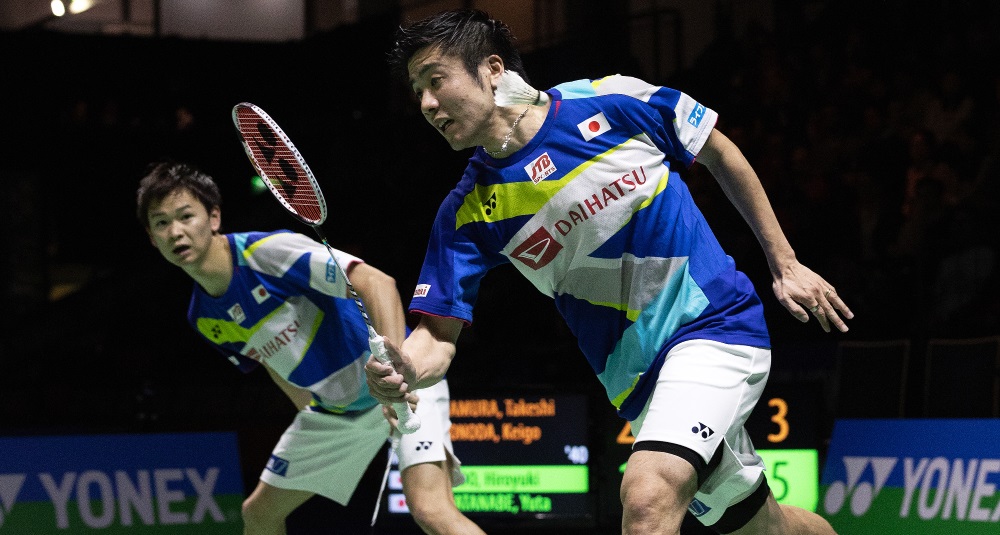
China (Group 1D) have a number of top men’s doubles pairs, but the ones who will lead the challenge will be Li Junhui/Liu Yuchen. The world No.3 duo have the ability to peak for the big tournaments, as they proved at the Thomas Cup, the World Championships and the HSBC BWF World Tour Finals last year.
They haven’t had a great start to the year, with a first round exit at the All England, and quarterfinal losses at the Indonesia Masters and the BAC, but will be hard to beat if they are close to their best form.
Chinese Taipei (1C) have some strong doubles pairs, with the men’s doubles responsibilities likely to be taken up by Wang Chi-Lin/Lee Yang. The No.32 pair have been in sparkling form, winning the Barcelona Spain Masters and then reaching three straight finals – Switzerland, Orleans and India – of which they won the last two.
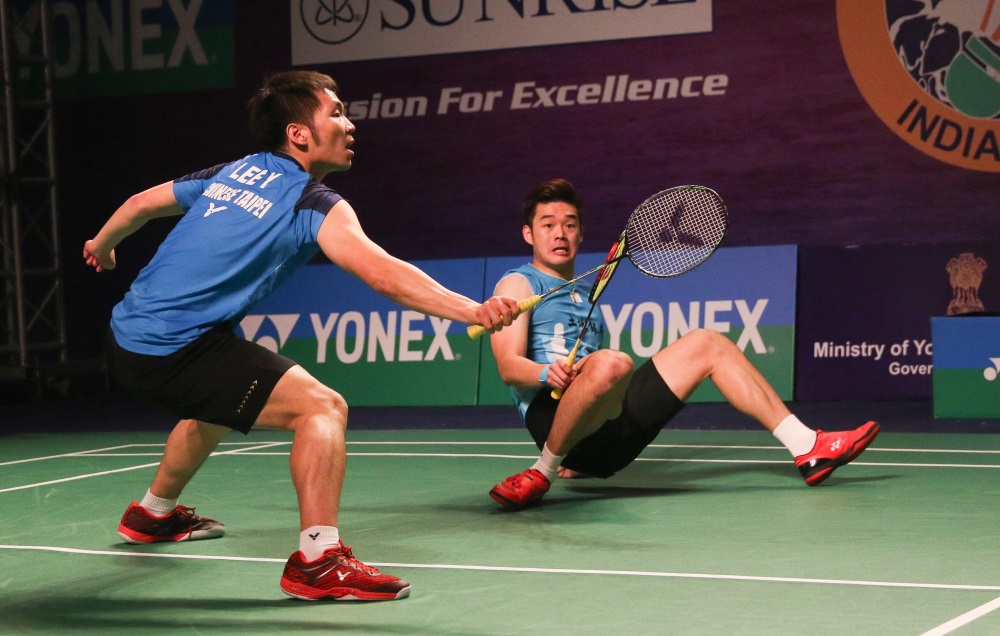
Japan’s challenge in men’s doubles in their group is likely to come from Bodin Isara/Maneepong Jongjit or Tinn Isriyanet/Kittisak Namdash. Isara/Jongjit have crossed the first round of only one of their last six tournaments, while Isriyanet/Namdash have only barely done better.
Russia’s best card is its men’s doubles pair of Vladimir Ivanov/Ivan Sozonov. While they aren’t in the kind of form that saw them win the All England in 2016, they can be a difficult pair to beat on their day.
Denmark and England will challenge Indonesia in Group 1B. Denmark, missing their women’s doubles and mixed doubles stalwarts of recent years, will bank heavily on men’s singles and men’s doubles. World No.9 duo Kim Astrup/Anders Skaarup Rasmussen are expected to lead their challenge; they reached a couple of semifinals this year, but haven’t found the kind of form that saw them claim the Victor China Open last year – their biggest victory to date.
England will bank on Marcus Ellis/Chris Langridge to deliver a point. The England duo had a profitable late season last year, winning the SaarLorLux Open and the Scottish Open, while this year they were in the semifinals of the Swiss Open.
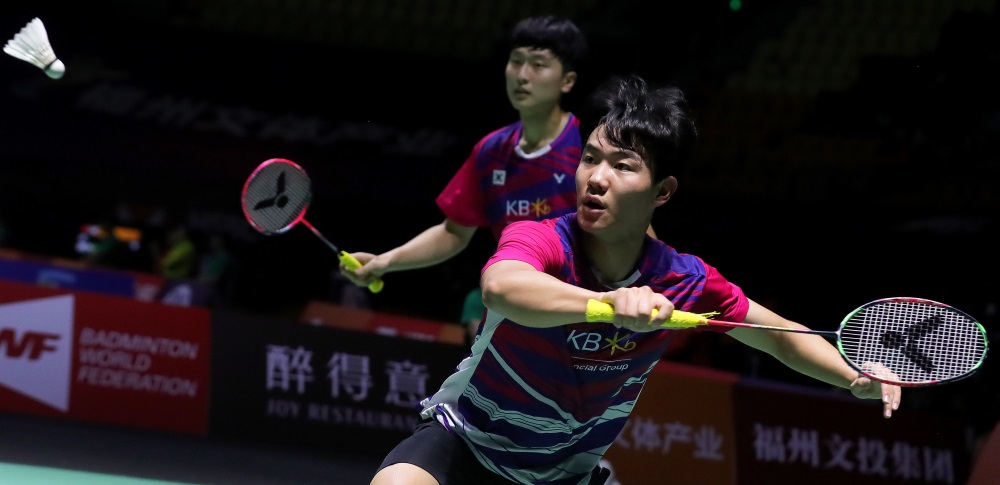
Defending champions Korea and Hong Kong are in Group 1C with Chinese Taipei. Korea didn’t have much luck in men’s doubles – Lee Yong Dae/Kim Gi Jung and Shin Baek Cheol/Ko Sung Hyun are independent players – but Kang Min Hyuk/Kim Won Ho’s semifinal appearance at the BAC might be the boost they needed. The young Koreans beat China’s Zhang Nan/Liu Cheng and Malaysia’s Aaron Chia/Soh Wooi Yik on their way to the last-four, and they lost to eventual champions Endo/Watanabe in a thriller, 27-25 in the third.
Quite significantly, Hong Kong don’t have a men’s doubles pair in the top 60 of the world rankings. It will be interesting to see what combinations they go with, for they do have a few experienced players who are currently focussing on mixed doubles.
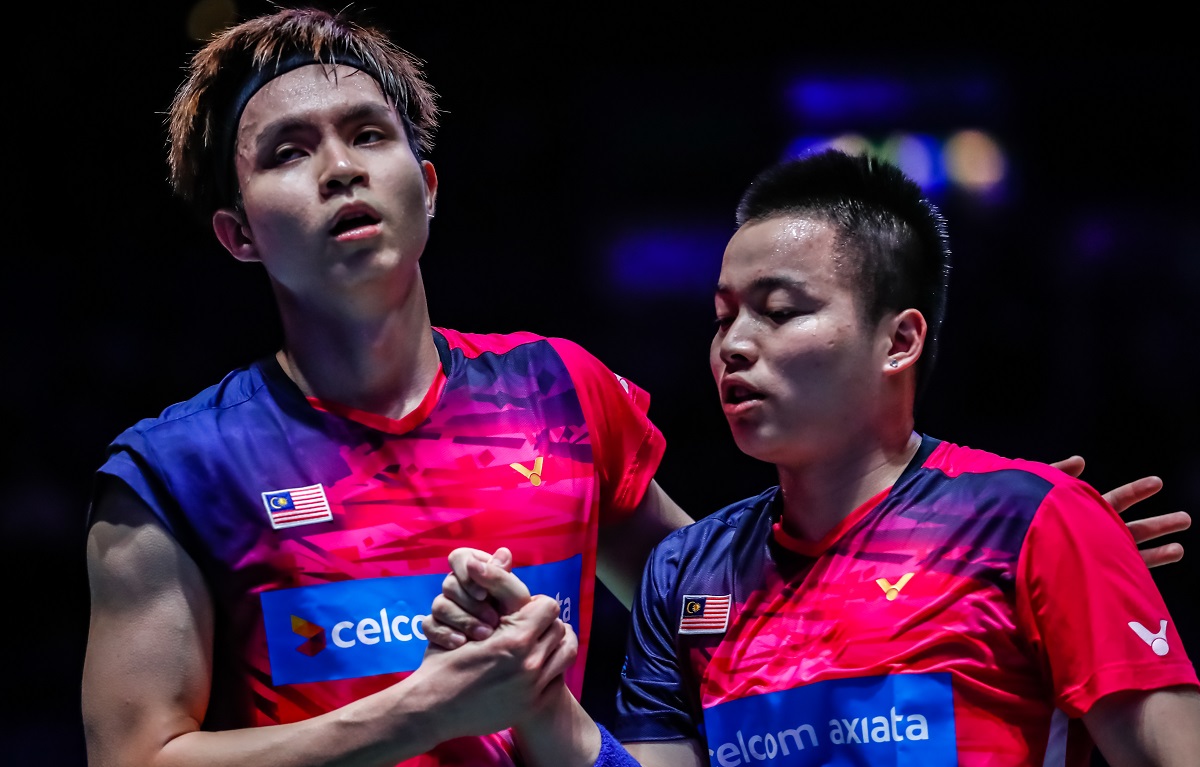
The battle in Group 1D is expected to boil down to the tie between India and Malaysia, although China will be wary of both.
For India, much will depend on whether Satwiksairaj Rankireddy, who injured his sternum earlier this year, is back to full fitness. Rankireddy and Chirag Shetty are a top pair and give India a sharp edge in men’s doubles; but in their absence Manu Attri/Sumeeth Reddy – semifinalists at the India Open – might lead the charge.
Malaysia can look to some exciting young names in men’s doubles. Aaron Chia/Soh Wooi Yik were sensational at the All England – where they reached the final; the Malaysians can also count on Ong Yew Sin/Teo Ee Yi who were runners-up at the Malaysia Masters.
Sudirman Cup News
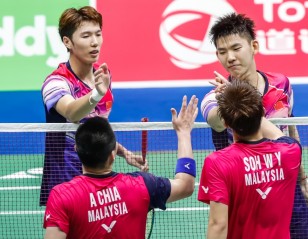
Sudirman Cup: The Most Thrilling Battles 5 June 2019
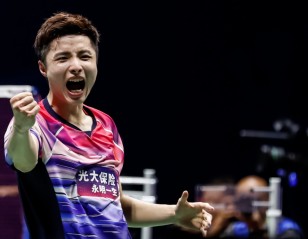
Stars Who Shone; Those Who Didn’t 4 June 2019
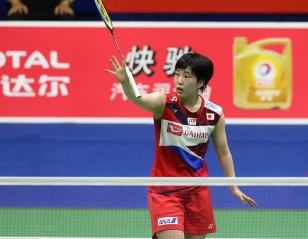
Key Moments: Chen vs. Yamaguchi – Sudirman Cup ‘19 30 May 2019
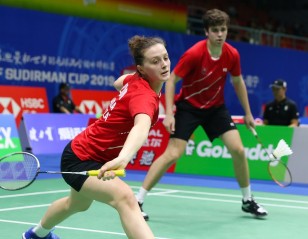
Slovakia Daring to Dream – Sudirman Cup ’19 28 May 2019
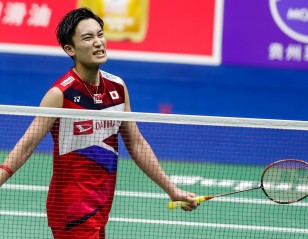
Key Moments: Shi vs. Momota – Sudirman Cup ‘19 28 May 2019
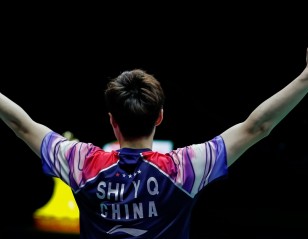
As It Happened CHN vs JPN – Sudirman Cup ‘19 27 May 2019
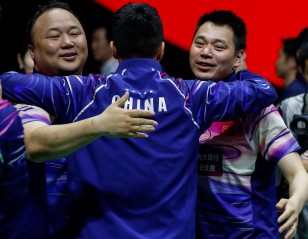
Celebrations and Concessions – Sudirman Cup ’19 26 May 2019
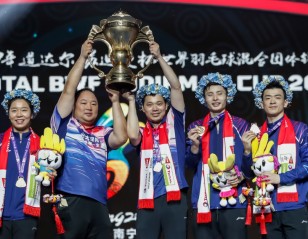
China’s Young Heroes Reclaim Title – Sudirman Cup ’19 26 May 2019
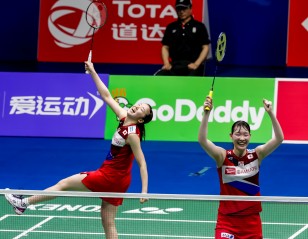
Park: We’re Going All Out! – Sudirman Cup ’19 25 May 2019
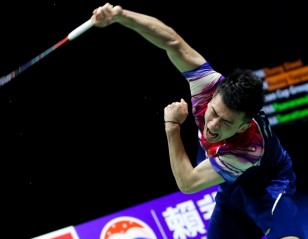
Big Guns Boom for China – Sudirman Cup ’19 25 May 2019
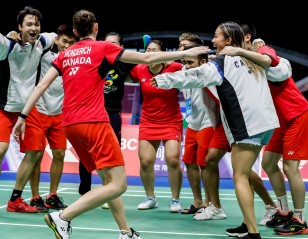
Brilliant Canada Top Group 2 – Sudirman Cup ‘19 25 May 2019
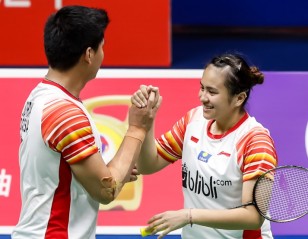
Indonesia Hobble Past Chinese Taipei – Sudirman Cup ’19 24 May 2019
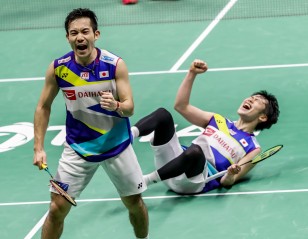
Japan Stay on Track – Sudirman Cup ’19 24 May 2019
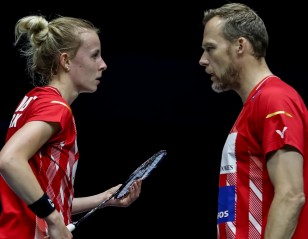
Jonassen: Young Generation ‘Hungry’ – Sudirman Cup ’19 24 May 2019
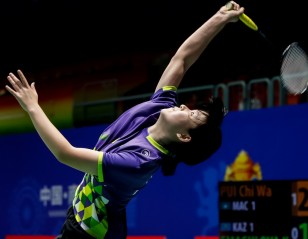
Another Teen Star in the Making – Sudirman Cup ’19 24 May 2019
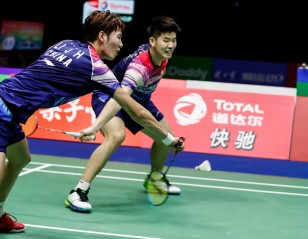
China Coast into Semis – Sudirman Cup ’19 23 May 2019
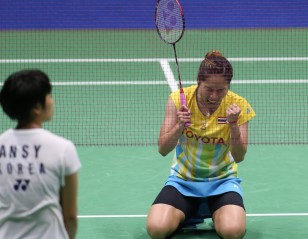
Defending Champs Trip Over Thailand – Sudirman Cup ’19 23 May 2019
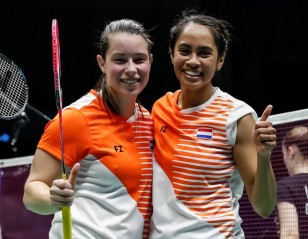
Netherlands Fight Back From Brink – Sudirman Cup ‘19 23 May 2019
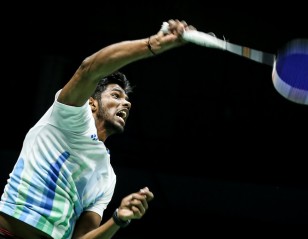
Rankireddy Impressive in Comeback from Fracture 23 May 2019
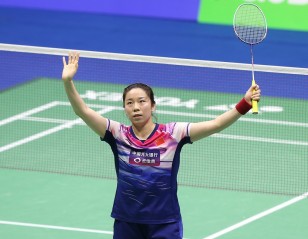
Final Eight Draw – Sudirman Cup ’19 23 May 2019
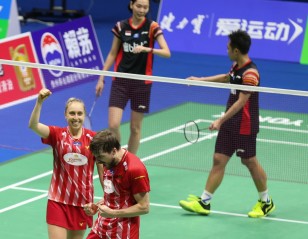
Danes Deliver! – Sudirman Cup ’19 22 May 2019
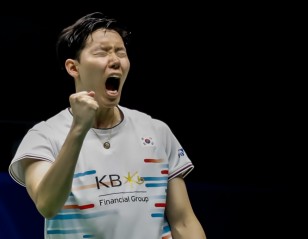
Korea Beat Chinese Taipei, Top Group – Sudirman Cup ’19 22 May 2019
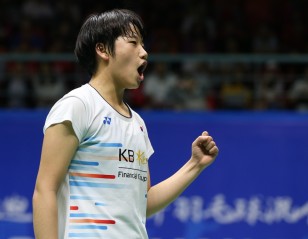
No Stopping An Se Young! – Sudirman Cup ’19 22 May 2019
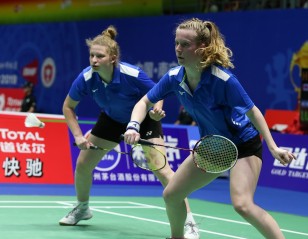
Israeli Youngster Embracing the Big Stage – Sudirman Cup ’19 22 May 2019
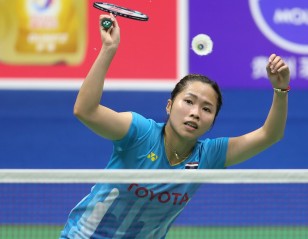
Thailand Thwart Russia – Sudirman Cup ’19 21 May 2019
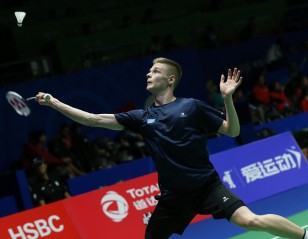
Pathway to Success for Kazakhstan – Sudirman Cup ’19 21 May 2019
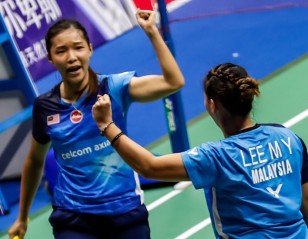
Malaysia Edge Past India – Sudirman Cup ’19 21 May 2019
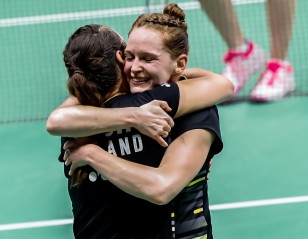
Continental Conquest! – Sudirman Cup ’19 20 May 2019
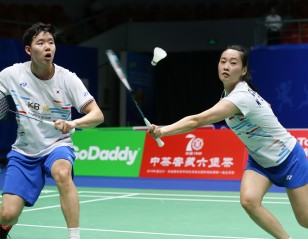
Korea into Quarters – Sudirman Cup ’19 20 May 2019
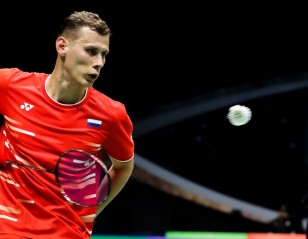
China Club Stint Powers Malkov – Sudirman Cup ’19 20 May 2019
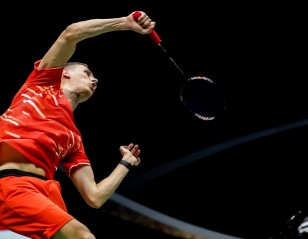
Wake-Up Call for Japan – Sudirman Cup ’19 20 May 2019
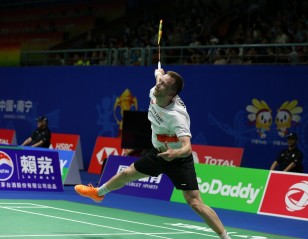
‘Greatest moment ever’ says Greenland – Sudirman Cup ’19 20 May 2019
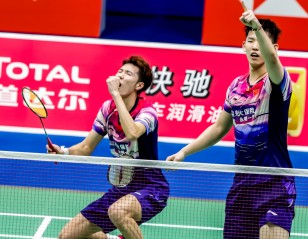
China Brush Off Scare – Sudirman Cup ’19 19 May 2019
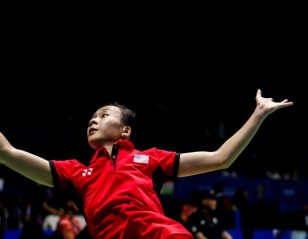
Iris Wang Unable to Resist Badminton’s Lure – Sudirman Cup ’19 19 May 2019
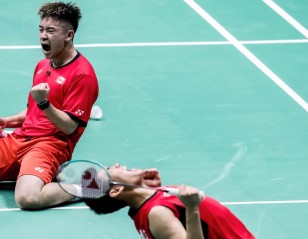
Thrilling Win for Canada – Sudirman Cup ’19 19 May 2019
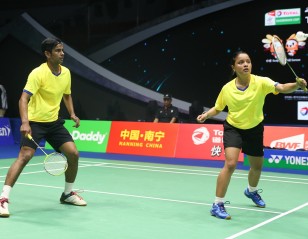
Learning Curve for Nepal – Sudirman Cup ’19 19 May 2019
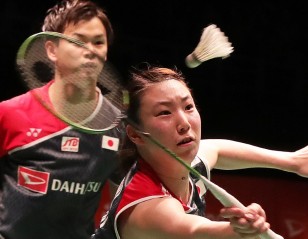
Mixed Doubles at Sudirman Cup – A Form Guide 19 May 2019
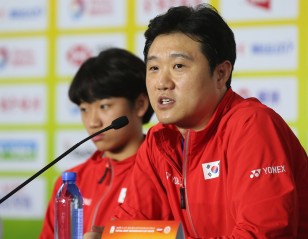
Speaking Their Minds – Sudirman Cup ’19 18 May 2019
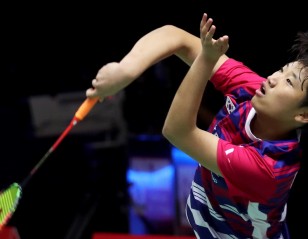
Women’s Singles at Sudirman Cup – A Form Guide 18 May 2019
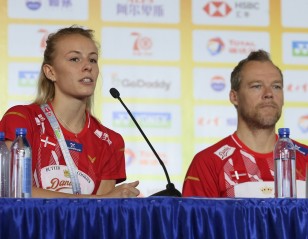
Denmark in Transition Phase – Sudirman Cup ’19 18 May 2019
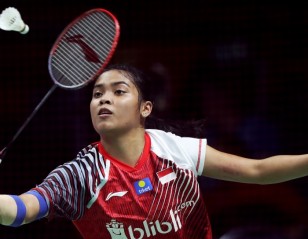
Indonesia Hold the Aces in Group 1B 17 May 2019
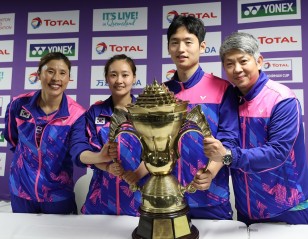
Final Preparations on Sudirman Cup Eve 16 May 2019
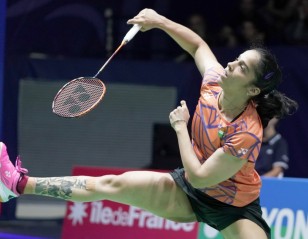
India-Malaysia Duel Likely to Decide Group 1D 15 May 2019
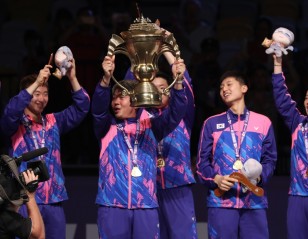
A Twist in the Tale – Sudirman Cup in the 2010s 15 May 2019
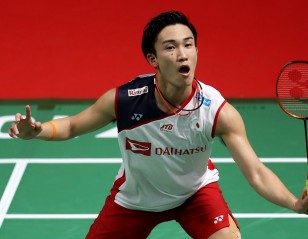
Men’s Singles at Sudirman Cup – A Form Guide 14 May 2019
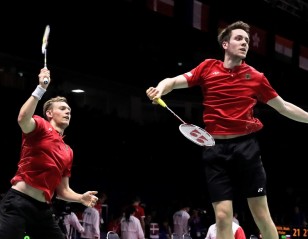
Spotlight On Canada-Germany Clash 11 May 2019
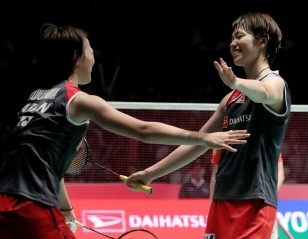
Women’s Doubles at Sudirman Cup – A Form Guide 10 May 2019
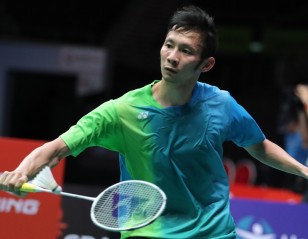
Tight Contest Expected between Netherlands, France 9 May 2019
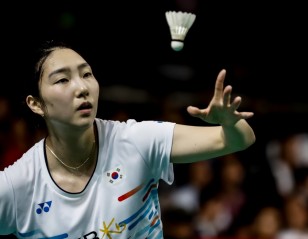
Sung’s Pullout a Setback for Korea in Group 1C 8 May 2019
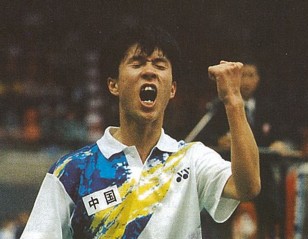
The Clash of Powerhouses – Sudirman Cup in the 90s 7 May 2019
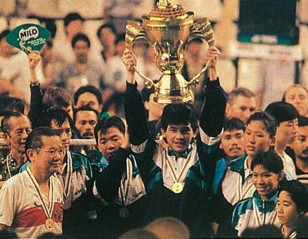
Glory on Home Soil – Sudirman Cup ’89 3 May 2019
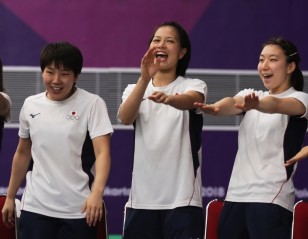
Spotlight on Japan, China – Sudirman Cup ’19 30 April 2019
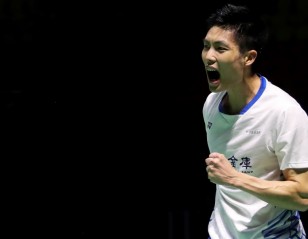
Chinese Taipei Can Go Far – Sudirman Cup ’19 27 April 2019
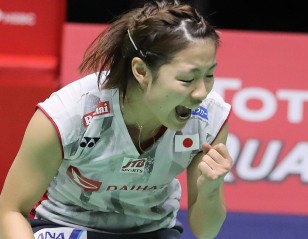
Everybody Wants to Beat Japan, Says Okuhara 26 April 2019
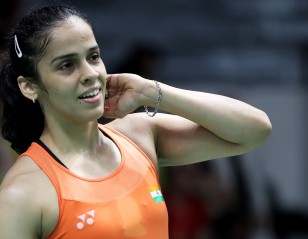
Title Triumph Not Far Away, Says Nehwal 25 April 2019
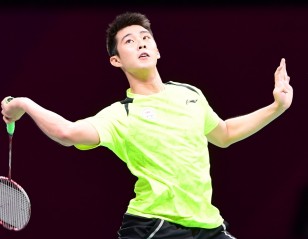
Loh Looks Forward to Team Challenge 24 April 2019
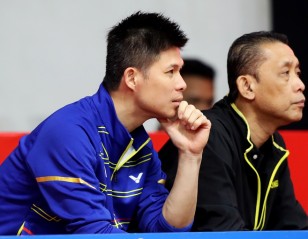
‘Team Spirit and Self-Belief are Important’: Wong Choong Hann 23 April 2019
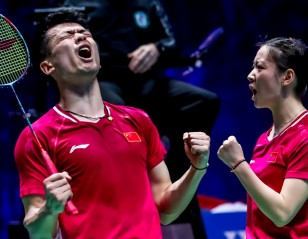
China’s Trump Cards – Zheng & Huang 22 April 2019
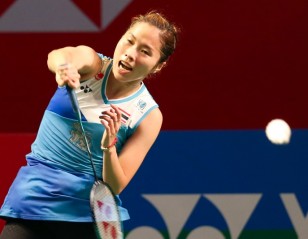
Intanon Optimistic About Thailand’s Chances 21 April 2019
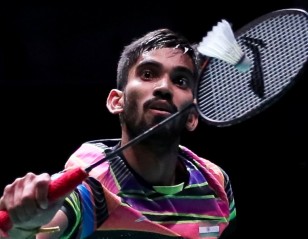
Kidambi Keen to Lead India to Team Glory 20 April 2019
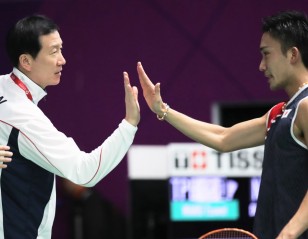
Month-Long Countdown Begins for Sudirman Cup 19 April 2019
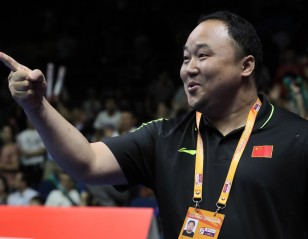
‘Looking to Convert Pressure into Motivation’: Zhang Jun 19 April 2019
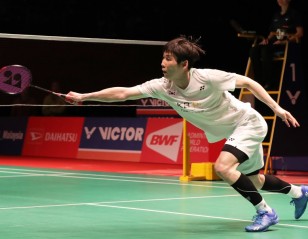
Setback for Korea’s Sudirman Cup Preparations 25 March 2019
Early Test for Hosts China: Sudirman Cup Draw 19 March 2019

Japan Get Top Billing – Sudirman Cup 11 March 2019

Hosts Ready as Sudirman Cup Countdown Begins 20 February 2019
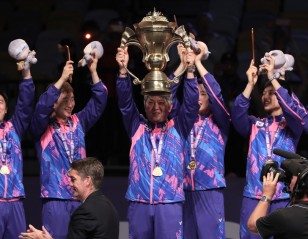
Sudirman Cup Attracts 32 Entries 18 February 2019

GoDaddy Extends Major Events Partnership with BWF 11 February 2019
